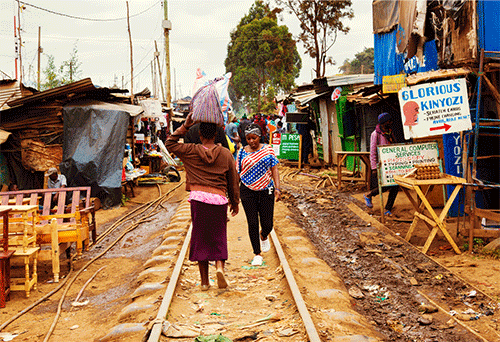JOHANNESBURG – A new law aimed at increasing the employment of black people in South Africa has enraged some businesses and opposition parties who say the legislation could see qualified workers lose their jobs. The government has rebuffed the criticism, saying the bill is not going to result in job losses and only seeks to promote diversity in what the World Bank says is the world’s most unequal country.
But South Africa’s leading opposition party, the Democratic Alliance (DA), has called for a “mass protest” in Cape Town on Wednesday against what it has dubbed the “race quotas” bill.
The DA, which has traditionally appealed to a predominantly white electorate, has taken legal action to have parts of the new law to be struck down arguing it violates South Africa’s constitutional principle of non-racialism.
DA leader John Steenhuisen charged that 600 000 people risk losing their jobs “because they have the ‘wrong’ skin colour or live and work in the ‘wrong’ areas”.
Three decades after the end of apartheid, South Africa remains plagued by stark inequalities.
Almost one in two black South Africans were unemployed in the first three months of 2023, while the jobless rate was only 9.5% among white people, according to official figures.
The new law requires companies with more than 50 employees to submit equity plans reflecting the demography of the region they operate in and set out how they intend to achieve them.
It also allows for the labour minister to set numerical targets for specific economic sectors.
Gareth Ackerman, chairman of Pick n Pay, one of South Africa’s largest grocery retailers, said the law threatens private employers whose workforce does not mirror racial demographics.
“This would have the effect of making large numbers of qualified people unemployed and substituting them with unqualified people,” he said this month.
But others disagree.
“It does not mean that the white people are going to be removed in order to create space for the disadvantaged groups,” Labour Minister Thulas Nxesi told a local broadcaster.
Commenting on the law in May, legal firm Baker McKenzie said that fostering diversity has “proven to be good business practice” and “equal representation in the workforce is seen as a positive by investors”.
South Africa’s largest trade union said the controversy surrounding the bill was overblown.
“It is a rational bill and not this big monster the DA is making it to be,” COSATU’s spokesman Matthew Parks said.
White people account for less than 10% of South Africa’s 60 million population, but hold more than 60% of top management roles according to a recent study, he said.
The bill, which amends pre-existing legislation, was signed into law by President Cyril Ramaphosa in April and is expected to come into operation in the coming months.
The debate comes as South Africa heads towards national elections next year. Polls suggest the ruling African National Congress, in power since the end of white rule in 1994, risks seeing its share of the vote drop below 50%. – Nampa/AFP



